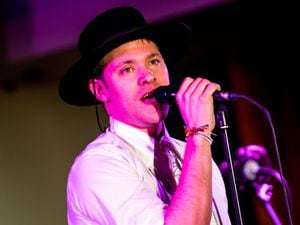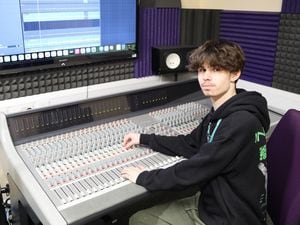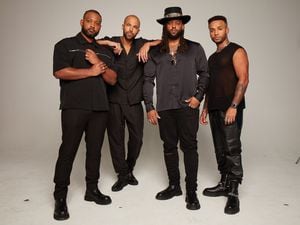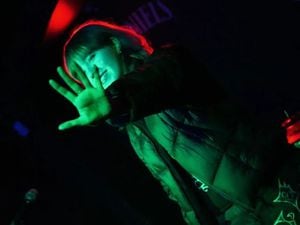Bruce Springsteen's right-hand man Stevie Van Zandt speaks ahead of Birmingham date
The CV’s pretty impressive. The Boss’s Right Hand Man. Check.
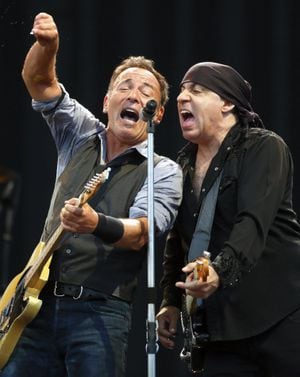
Bruce Springsteen wouldn’t leave home without the ever-reliable Stevie Van Zandt by his side.
Then there’s Saving The World From Apartheid and Helping To Free Nelson Mandela. Check.
Stevie Van Zandt was, quite literally, instrumental in the fight to smash the discredited, racist system that lasted from 1948 until 1991 in South Africa. Mandela’s Long Walk To Freedom was in part because people like Van Zandt refused to let the story die.
And lest we forget: Star of one of TV’s coolest ever shows. Check.
Stevie became Silvio Dante, playing opposite the late, great James Gandolfini, in The Sopranos. His debut acting gig earned him more TV work, on the Norwegian-American New York gangster series Lilyhammer, in which he played Frank ‘The Fixer’ Tagliano.
Having recently toured the world’s arenas and football stadia with Bruce and The E Street Band, Stevie is back with his downtime, solo project – Little Steven And The Disciples Of Soul. He’s playing his first UK tour in 25 years – as his resume shows, that’s fine, he’s been a little busy – and the man described by Rolling Stone as ‘one of the most underrated songwriters of the rock era’ will headline Birmingham’s O2 Academy tonight.
He’s recorded his first album in 15 years, Soulfire, which is his most uniquely personal artistic statement thus far. The album sees the Rock & Roll Hall of Famer revisiting songs that span the length of his career as artist, performer, producer, arranger, and songwriter. He focuses directly on the hugely influential ‘soul horns-meet-rock‘n’roll guitars’ approach he first pioneered on Southside Johnny and the Asbury Jukes’ classic first three albums.
Stevie says: “It’s a tribute to the entire American rock‘n’roll history. There’s a bit of everything – from blues and dop wop to rock’n’soul, from reggae to salsa. It’s quite a mixture of things. It keeps things rolling y’know. We don’t have time to get bored.”
Soulfire was quite spontaneous. Stevie had just completed Bruce’s European tour last summer and was about to go to Australia when a friend of his asked if he was going to return to London.
There was a birthday party planned for Bill Wyman’s 80th birthday and Stevie was asked to throw a band together.
“We hadn’t done anything in 25 years, but I just said ‘OK’. I thought maybe it was time. So I did that. And I was quite surprised because I became reacquainted with my own music. This stuff holds up very well.”
And so the idea for a tour was formed. During decades at the coalface of rock, Stevie has lost none of his fire.
“I don’t have to explain why it’s important to protest about politics any more. Donald Trump does a good job of that every single day. But politics is 24/7, you can’t escape it. So I felt, people needed a sanctuary from it and that’s why I wanted to give them a little music because music transports everyone away from the politics.”
Soulfire was recorded in six weeks and has big sounds, big horns and big strings. It’s given Stevie – for so long the bridesmaid – the chance to step back into the spotlight. Not that he hasn’t been here before. As a political rock‘n’roller, Stevie was behind The Artists United Against Apartheid. He pooled the talents of 54 different artists to record the album Sun City, which raised awareness about the apartheid policy in South Africa.
The record included Bruce, Peter Gabriel, Miles Davis, Bob Dylan and Lou Reed. It helped raise more than $1 million for anti-apartheid effort.
“I decided to be the political guy. Nobody else was doing that, not in their work. They might have attended a protest rally, but I wanted to go further. For five albums that’s all I did. I was really quite satisfied with it. We really were quite successful with South Africa, we brought that Government down with the help of the European Union and Jerry Dammers and Peter Gabriel. In the end, the strategy was so well supported that we got Mandela released. Rock’n’roll did that. Don’t ever let anybody tell you any different. We were very successful with that.”
Other campaigns have featured in Stevie’s notable career, not least his campaign surrounding American activities in Nicaragua.
But the man who was inspired by The Beatles and The Stones will forever be linked with both his work alongside Bruce in The E Street Band and James Gandolfini in The Sopranos.
“The Sopranos came along at exactly the same time. I was asked by David Chase if I wanted to be in a TV show. I told him ‘no’. But I had nothing else to do, so I agreed to it. I said to David: “I swear to God, I’m not an actor, but I’ve got nothing else to do right now so I’ll do it’.
“It’s almost unbelievable. Gandolfini was wonderful. The star of the show sets the tone on the set. That guy was amazing. All of a sudden, I had a new craft.”
And then there’s Bruce.
“Well, before you know it, Bruce wanted to start touring again with the E Street Band. Suddenly, 20 years had passed. Man, I left my own music behind for all that time.
“Every time Bruce and The E Street Band go out now, we get bigger. I don’t understand, it. We’re not on the radio, other than my own station. We’re not in the news but suddenly every single time we go out we get bigger. It’s an interesting phenomenon. We’re getting younger and younger audiences coming out. It’s the same for The Stones and people like that. I guess the fans realise that what we do is not going to be replaced. These bands are once in a lifetime. You have to catch it before it’s gone.”

